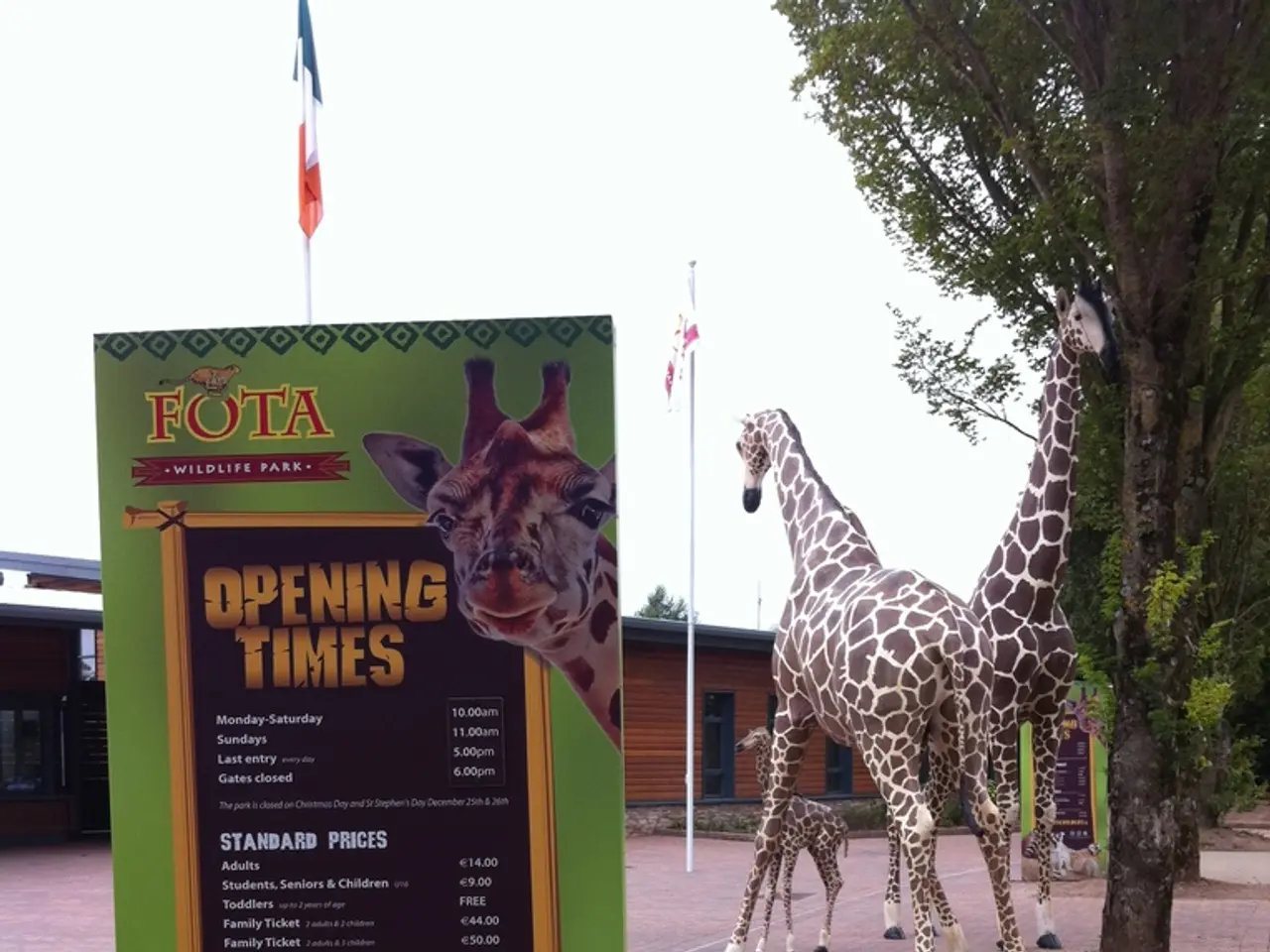Artificial Reproduction of African Wild Dogs Marks New Conservation Strategy
In the vast plains of the Kruger National Park, a dream is held close - one day, taking grandchildren to witness the majestic African wild dogs, also known as painted wolves, in their natural habitat. This dream is shared by many, as the species faces an uncertain future. However, a recent conservation effort offers hope: the establishment of a sperm bank for African wild dogs.
Spearheaded by the Institute for Breeding Rare and Endangered African Mammals, this innovative initiative aims to safeguard the future of the African wild dogs by increasing genetic diversity and spreading genes across genetically isolated populations. Artificial insemination, a method more cost-effective and less resource-intensive than physically relocating animals, is at the heart of this approach.
The sperm bank serves as a long-term repository of genetic material for future conservation efforts. By storing and strategically using sperm from multiple individuals, it helps preserve genetic diversity, a crucial aspect given the species' historically low population numbers and risks of inbreeding. This approach can potentially increase population resilience and mitigate genetic challenges faced by African wild dogs.
While comprehensive data on direct population increases attributable to this sperm bank are not yet widely available, the scientific and conservation community's interest and investment, as evidenced by presentations and discussions at the 13th Oppenheimer Research Conference, underline the importance and optimism around these assisted reproductive technologies.
The African wild dogs are primarily found in sub-Saharan Africa, but their habitat is under threat. Habitat fragmentation, human-wildlife conflict, diseases transmitted from domestic animals, and human expansion are all challenges that conservationists face. The sperm bank initiative, by using artificial insemination with sperm from genetically diverse males, introduces genetic material without physically relocating the animals, making it a less stressful and risky method.
The population of African wild dogs has declined significantly due to human impact, but efforts are being made to reverse this trend. Large organizations like the World Wildlife Fund and Fauna & Flora International are supporting African wild dog conservation initiatives. Introducing genes from immune individuals can enhance the population's resilience to certain diseases.
Public support through donations, awareness, and advocacy can help ensure the prolonged future of the African wild dogs. As Alana Theron, who holds a BSc in Biodiversity and Ecology, emphasizes, innovative conservation efforts are crucial for the survival of wild animal populations in the face of growing human impact. Global support and continued research hold promise for the future of many endangered species.
References:
- Institute for Breeding Rare and Endangered African Mammals. (n.d.). Retrieved from https://www.ibream.org/
- Theron, A. (n.d.). Canine biology research and the importance of genetic diversity. Retrieved from https://www.canine-biology.com/
- The African Wild Dog Sperm Bank. (n.d.). Retrieved from https://www.wildlifevets.co.za/the-african-wild-dog-sperm-bank/
- African Wild Dog Conservation. (n.d.). Retrieved from https://www.worldwildlife.org/species/african-wild-dog
- The 13th Oppenheimer Research Conference. (n.d.). Retrieved from https://www.sanparks.org/news/37600/the-13th-oppenheimer-research-conference
- The Institute for Breeding Rare and Endangered African Mammals, through its novel sperm bank initiative for African wild dogs, aims to increase genetic diversity and improve the species' resilience through artificial insemination, as supported by progressing environmental-science and artificial-intelligence.
- As habitat destruction, human-wildlife conflict, and diseases pose significant threats to African wild dogs, the use of assisted reproductive technologies, like sperm banks, in the field of conservation and science, aligns with the goals of health-and-wellness and mental-health organizations focused on preserving endangered species.
- In the realm of wildlife research, Alana Theron, who holds a BSc in Biodiversity and Ecology, underscores the importance of genetic diversity and innovation in conservation efforts, enhancing the chances of many endangered species' survival in the environmental-science community.
- By utilizing the African Wild Dog Sperm Bank and strategically incorporating genes from genetically diverse males, the conservation and science sector can bolster populations' resilience to challenges, as outlined in presentations at the 13th Oppenheimer Research Conference and discussed by global organizations like the World Wildlife Fund and Fauna & Flora International.
- To guarantee the continued existence of the majestic African wild dogs within their natural habitats, public backing via donations, awareness, and advocacy play essential roles in boosting research, technological advancements, and the ultimate success of conservation initiatives in the domains of ecology, technology, and artuficial-intelligence.




